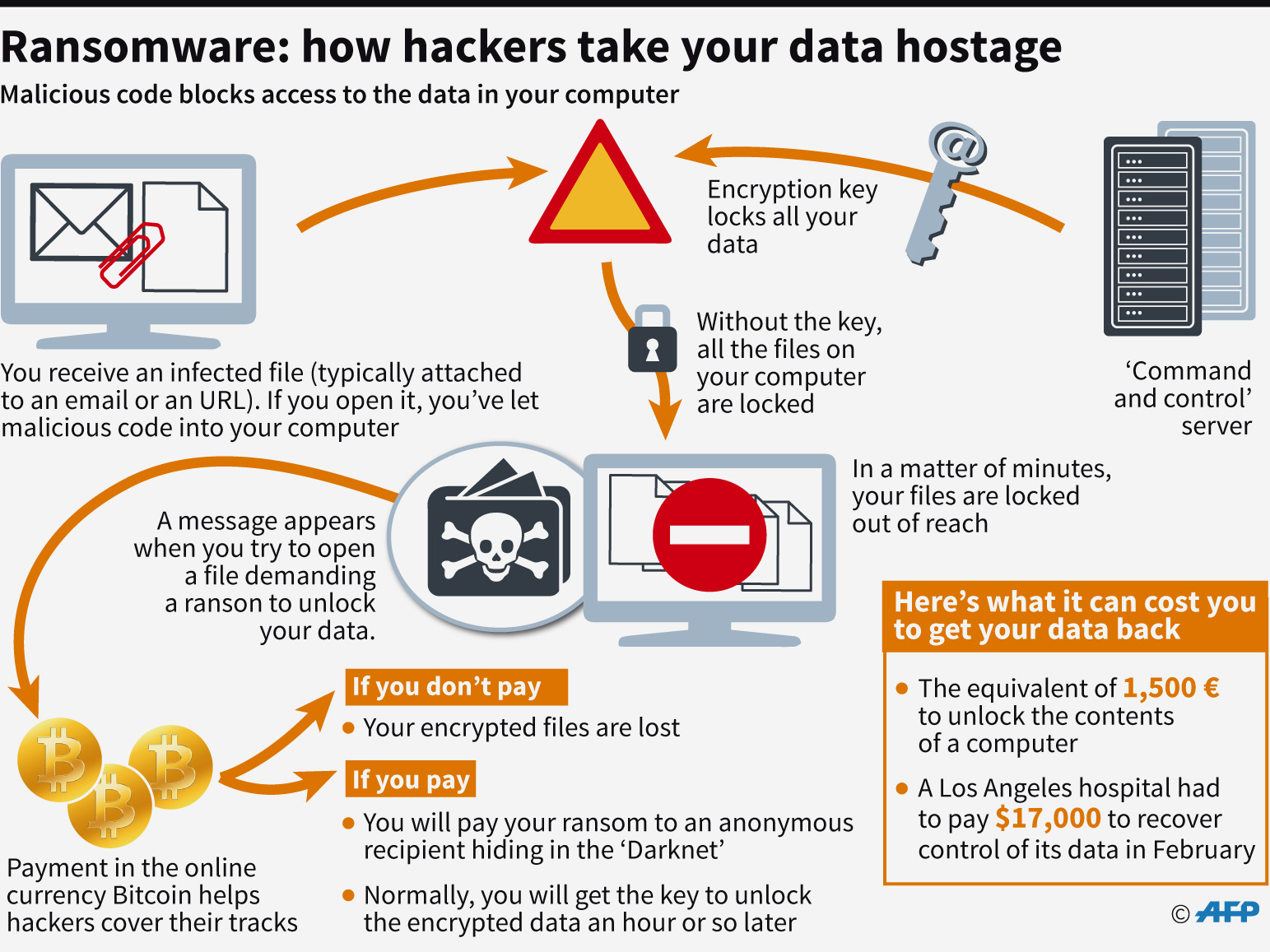

LONDON: The unprecedented global cyber attack has hit more than 200,000 victims in scores of countries, Europol said on Sunday, warning that the situation could escalate when people return to work. An international manhunt was well under way for the plotters behind the world’s biggest-ever computer ransom assault. The indiscriminate attack, which began on Friday, struck banks, hospitals and government agencies in more than 150 countries, exploiting known vulnerabilities in old Microsoft computer operating systems.
US package delivery giant FedEx, European car factories, Spanish telecoms giant Telefonica, Britain’s health service and Germany’s Deutsche Bahn rail network were among those hit.
Europol Executive Director Rob Wainwright said the situation could worsen on Monday as workers return to their offices after the weekend and log on. “We’ve never seen anything like this,” the head of the European Union’s policing agency told Britain’s ITV television, calling its reach “unprecedented”.
“The latest count is over 200,000 victims in at least 150 countries.
Many of those victims will be businesses, including large corporations. “We’re in the face of an escalating threat.
“I’m worried about how the numbers will continue to grow when people go to work and turn on their machines on Monday.”
The 5,500-strong Renault factory in Douai, northern France, one of the most important car plants in the country, will not open on Monday due to the attack, sources said.
Images appear on victims’ screens demanding payment of $300 in the virtual currency Bitcoin, saying: “Ooops, your files have been encrypted!”
Payment is demanded within three days or the price is doubled, and if none is received within seven days the locked files will be deleted, according to the screen message.
Bitcoin, the world’s most-used virtual currency, allows for anonymous transactions, which happen via heavily encrypted codes.
Experts and governments alike warn against ceding to the demands and Wainwright said few victims so far have been paying up.
US software firm Symantec said that part-way through Saturday, transactions totalling $28,600 had taken place through the five Bitcoin addresses used by the ransomware.
“Paying the ransom does not guarantee the encrypted files will be released,” the US Department of Homeland Security’s computer emergency response team said.
“It only guarantees that the malicious actors receive the victim’s money, and in some cases, their banking information.”
The culprits used a digital code believed to have been developed by the US National Security Agency — and subsequently leaked as part of a document dump, according to researchers at the Moscow-based computer security firm Kaspersky Lab.
A hacking group called Shadow Brokers released the malware in April, claiming to have discovered the flaw from the NSA, Kaspersky said.
The attack is unique, according to Europol, because it combines ransomware with a worm function, meaning once one machine is infected, the entire internal network is scanned and other vulnerable machines are infected.
The attack therefore spread faster than previous, smaller-scale ransomware attacks. Microsoft said the situation was “painful” and that it was taking “all possible actions to protect our customers”.
It issued guidance for people to protect their systems, while taking the highly unusual step of reissuing security patches first made available in March for Windows XP and other older versions of its operating system. — AFP
Oman Observer is now on the WhatsApp channel. Click here



